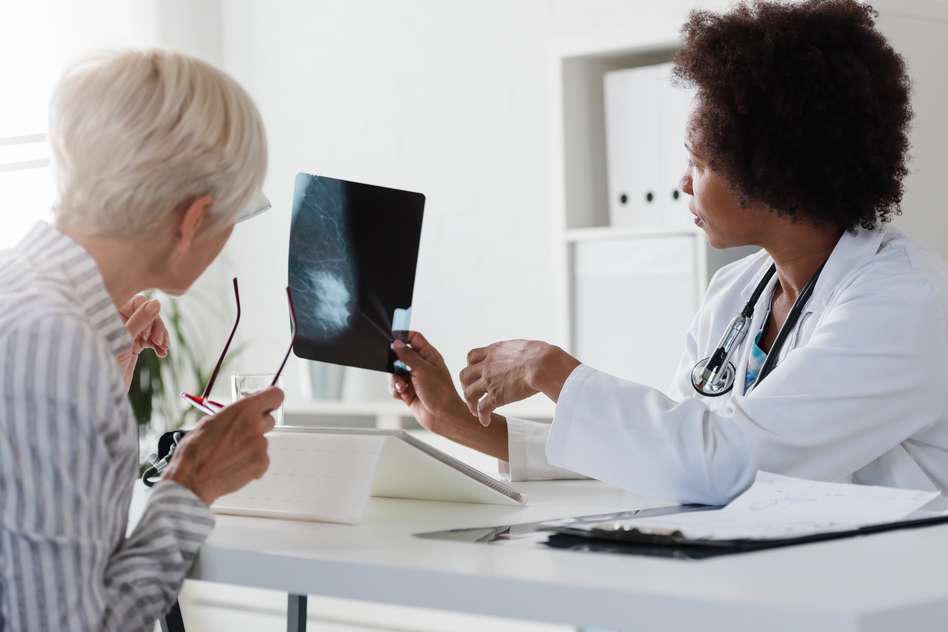Understanding medical negligence in breast cancer

As part of Tees’ ongoing commitment to raising awareness about important legal and medical issues, we’ve prepared the following guide exploring the interaction between breast cancer and medical negligence. This guide aims to provide an overview of misdiagnosed breast cancer, common issues in medical care and bringing a legal claim, as well as providing resources for those affected.
- What is breast cancer: Understanding the disease and risk factors
- The legal perspective: Breach of duty and causation
- Medical negligence and breast cancer: Categories and causes
- How to claim compensation for medical negligence in breast
- Support and resources for victims of medical negligence
What is breast cancer: Understanding the disease and risk factors
Breast cancer is the most common cancer in the UK, with around 55,900 people diagnosed every year. Breast cancer can occur in men and women, though it is significantly more common in women with one in seven women in the UK developing breast cancer during their lifetime.
Causes and risk factors
The cause of breast cancer is not fully understood, though research has shown several factors can impact the risk of developing the disease, including:
- Age- most breast cancers occur in women over 50
- Being overweight or obese
- Drinking alcohol
- Taking the contraceptive pill or HRT
- A family history of breast cancer
- Previous benign breast disease
- A previous diagnosis of breast cancer
Symptoms
The NHS Breast Screening Programme invites all women between the ages of 50-70 registered with a GP for screening every three years. It is important however to look out for potential symptoms of breast cancer, which can include:
- A lump or thickening in the breast or armpit
- Alterations in the size or shape of the breast
- Dimpling or puckering of the skin
- Changes in the nipple, such as inversion, discharge, or rash
- Redness or swelling of the breast
- Continual pain or discomfort
It is imperative to consult a medical professional for further examination if you notice any of these symptoms.
Breast cancer diagnosis
Diagnosis with breast cancer can occur after routine screening or on consulting with your GP having noticed symptoms. You GP will examine you and if they think further investigation is needed will refer you to a specialist breast cancer clinic. Investigations can include:
- Examination
- Mammogram
- Breast Ultrasound
- Biopsy - including needle aspiration, needle biopsy or vacuum assisted biopsy
Treatment
Once a diagnosis of breast cancer has been made more tests may be required to establish the type of cancer and to stage the disease. These tests may include MRI or CT scans, blood tests, and checking lymph nodes for cancer cells. The exact combination of treatment will depend on the type and stage of the disease, however, the main treatments for breast cancer are:
- Surgery
- Radiotherapy
- Chemotherapy
- Hormone therapy
- Targeted therapy
The prognosis for breast cancer is generally good, particularly with early diagnosis. Survival will depend on the type and stage of the cancer, your level of health and fitness, and whether you have had any previous treatments.
The legal perspective: Breach of duty and causation
To be successful in a medical negligence claim it is necessary to prove that:
- The standard of care provided fell below the level normally to be expected of a practitioner in that field or specialisation at the relevant time (Breach of Duty). If the practitioner can show in his/her defence that there is a body of competent practitioners who would have acted in the same way, the claim will not succeed.
- The damage suffered is a direct consequence of the negligent acts or omissions (causation). The fact that a practitioner can be shown to have been negligent is not sufficient on its own – You must be able to establish that there is a direct causal link between the negligence and the injury for which you are claiming compensation. This link between cause and injury is not as obvious as it sounds and must be supported by independent medical opinion.
Medical negligence and breast cancer: Categories and causes
A diagnosis of breast cancer is always devastating, however, if there has been negligent treatment this can lead to delays in diagnosis and treatment which could allow the cancer to progress. Negligence in diagnosing and treating breast cancer can have a devastating impact on patients, affecting the stage and grade of disease, and treatment options, and potentially reducing the chance of survival.
Common types of negligence in breast cancer claims include:
- Failing to refer a patient for further investigation;
- Failing to investigate symptoms adequately;
- Misdiagnosis;
- Failure to report scans and interpret investigation reports properly;
- Inappropriate treatment plans;
- Substandard surgery;
- Delays in providing treatment;
- Failing to provide adequate follow-up.
How to claim compensation for medical negligence in breast
Compensation aims to put the patient back in the position they would have been in had the negligence not occurred.
The first step in bringing a legal claim is to collect the evidence to establish a breach of duty and causation. This includes obtaining medical records, taking witness statements, and liaising with independent medical experts to identify whether negligence has occurred and, if so, the impact.
Compensation levels will be assessed based on the unique circumstances of each situation, taking into account the injuries and losses resulting from negligence. Compensation can be claimed for the pain, suffering and loss of amenity resulting from the negligence, including additional or more invasive surgeries or treatment required, psychiatric damage, scarring, and a reduction in life expectancy or worse prognosis. Compensation can also be claimed for financial losses including loss of earnings, care, medical treatments and therapies, aids and equipment, and travel.
If you believe you've been harmed as a result of medical negligence in a breast cancer case, it's vital to consult skilled solicitors who possess a profound comprehension of breast cancer claims. At Tees our specialist medical negligence solicitors have expertise in breast cancer claims and have successfully secured compensation for many patients who have suffered injuries because of negligent breast cancer care and treatment, and for those who have lost loved ones due to substandard care. Our experienced solicitors will guide you through the legal process and support you to obtain the compensation necessary to move forward.
Support and resources for victims of medical negligence
If you or a loved one have suffered from negligent care or treatment in respect of breast cancer it can feel overwhelming and incredibly distressing. However, it's important to know that you are not alone. There are various support options available to help you navigate through this challenging time and here at Tees we will not only guide you through the legal process to obtain compensation but will direct you to specialist services to support you through this difficult time.
These resources can provide valuable information and insights, helping you make informed decisions about your situation.
For further help and information, you may find it beneficial to explore the following resources:
- NHS website - Breast Cancer Information
- Cancer Research UK - Breast Cancer Overview
- Macmillan Cancer Support - Breast Cancer Information
These trusted sources offer comprehensive information on breast cancer, including details about the condition, its diagnosis, available treatments, and support networks.
At Tees Law, our expert medical negligence solicitors are committed to helping victims of medical negligence in breast cancer cases. We understand the complexities of these claims and work tirelessly to ensure our clients receive the compensation they deserve. Our initial investigations are entirely free of charge and, should we consider there are sufficient prospects of success to bring a legal claim, we can bring breast cancer claims on a no-win, no-fee basis. If you have concerns about your care or treatment concerning breast cancer, contact us today to discuss your case and explore your legal options with our dedicated team of specialist solicitors.
We’re here to help
Our specialist lawyers are based in:
Cambridgeshire:
Essex:
Hertfordshire:
But we can help you wherever you are in England and Wales.
Chat to the Author, Isobel Foenander
Senior Associate, Medical Negligence, Bishop's Stortford office
Meet Isobel
- Areas of expertise
- Testimonials
Anonymous
All the members of Tees' legal team were very professional. Isobel in particular was absolutely wonderful, she was engaging and always responded promptly. I was kept informed all the time, explaining everything very clearly. I am so pleased to have worked with her.
Anonymous
Bishop's Stortford
'I appreciate everything you’ve done and continue to do for me right from the first time we spoke'
Anonymous
Bishop's Stortford
'A positive outcome. Thank you for all your support and kindness. I finally have closure'
Anonymous
Bishop's Stortford
'I feel a real sense of closure which I am hoping will help to improve how I feel about the whole thing. I can't thank you enough for all the hard work you have put in'
Anonymous
Bishop's Stortford
I absolutely trust your judgment.
Anonymous
Bishop's Stortford
'It has been a great help to me mentally to be listened to and taken seriously. Your service has been very impressive'
